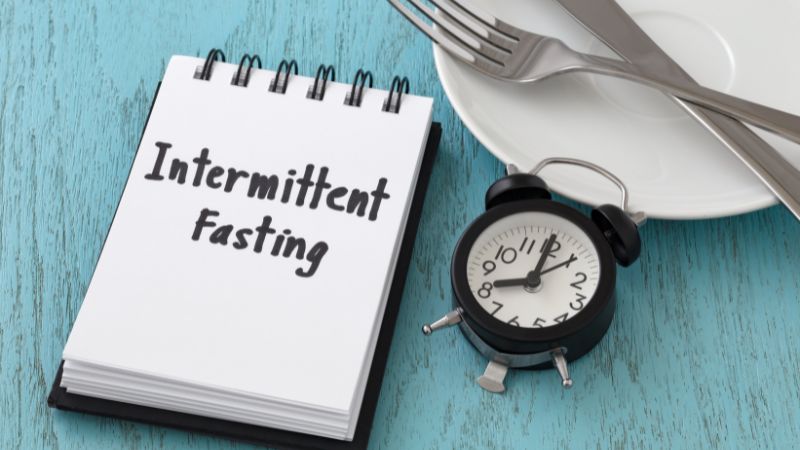Intermittent fasting is an eating pattern that involves alternating between periods of eating and fasting to promote health and a slim physique. While it offers numerous benefits, intermittent fasting also has some drawbacks and may not be suitable for everyone. Therefore, before adopting any fasting method, it is crucial to conduct thorough research, seek expert advice, and listen to your body to make necessary adjustments.
# 1. Side Effects of Intermittent Fasting
## Dizziness and Fatigue
Embarking on an intermittent fasting journey can be challenging as the body contends with intense hunger, fatigue, nagging headaches, and nausea. These challenges typically arise in the initial phase, lasting from one to two weeks, as the body adjusts to a sudden calorie deficit. When blood sugar levels dip, the brain receives a signal of energy deficiency, resulting in fatigue and a sense of depletion.
## Weakened Immune System
Inadequate nutrition can impair the immune system and lower resistance, making individuals more susceptible to illnesses.
 Weakened Immune System
Weakened Immune System
## Malnutrition
Improper implementation of intermittent fasting can lead to malnutrition and a host of health issues. Malnutrition due to incorrect fasting may result in calorie, vitamin, and mineral deficiencies, causing severe health problems, including immune system dysfunction.
## Digestive Issues
Many individuals who practice intermittent fasting experience digestive disorders such as constipation, bloating, diarrhea, and nausea due to abrupt changes in their eating patterns. These disruptions affect the digestive system, causing irregular bowel movements. Additionally, fasting can lead to dehydration, further exacerbating constipation.
 Digestive Issues
Digestive Issues
## Sleep Disturbances
Intermittent fasting may cause difficulty sleeping, shallow sleep, or even insomnia. Poor sleep quality leads to fatigue, irritability, and reduced concentration during the day. Prolonged sleep deprivation perpetuates fatigue as the body fails to replenish its energy reserves, resulting in significant health deterioration.
## Bad Breath
Some individuals may experience halitosis, or bad breath, during intermittent fasting due to decreased saliva production and increased ketone levels in the breath.
The reduction in saliva production during fasting creates a favorable environment for bacterial growth, leading to halitosis. Additionally, as the body utilizes fat as its primary energy source, ketone levels—a byproduct of fat burning—increase in the blood and are excreted through sweat and breath, producing an unpleasant odor.
 Bad Breath
Bad Breath
## Irritability
Low blood sugar, or hypoglycemia, is a common occurrence during calorie-restricted diets or fasting, impacting both physical health and mood, making individuals prone to irritability, anxiety, and difficulty concentrating.
# 2. Who Should Not Practice Intermittent Fasting?
Consulting a nutritionist before adopting any intermittent fasting method is essential. While it may offer health benefits, it is not universally applicable. Individuals who should refrain from this practice include:
– Pregnant or breastfeeding women: Their nutritional requirements are elevated during these periods, and fasting may adversely affect the health of both mother and child.
– Children and adolescents: Their bodies are undergoing rapid development and require adequate nutrition. Fasting can hinder this process and lead to health issues.
– Elderly individuals with frailty: Fasting may further weaken their bodies and cause nutritional deficiencies.
– Immunocompromised individuals: A weakened immune system makes them more susceptible to infections. Fasting may exacerbate this condition.
– Those with a history of eating disorders: Fasting may trigger unhealthy eating behaviors and negatively impact mental health.
Additionally, individuals with specific health conditions or those taking medication should consult their doctors before attempting intermittent fasting. Medical professionals will assess their health status and provide appropriate guidance to ensure safety and effectiveness.
 Who Should Not Practice Intermittent Fasting?
Who Should Not Practice Intermittent Fasting?
*The aforementioned are some of the common side effects of intermittent fasting for weight loss. Hopefully, this information will be useful to you!*
*Source: Sức khỏe và Đời sống Newspaper*
The Ultimate Guide to Slimming Down: Angelababy’s 30-Minute Post-Meal Routine and Liu Yifei’s Intermittent Fasting Secrets Unveiled.
“Angelababy, a renowned celebrity, has a unique post-meal routine that contributes to her slender figure. She makes it a point to stand for 30 minutes after each meal, believing that this simple habit helps keep her waistline trim and her overall physique in shape. This disciplined approach to her wellness regimen has caught the attention of many, sparking curiosity about the potential benefits of adopting similar practices.”





































